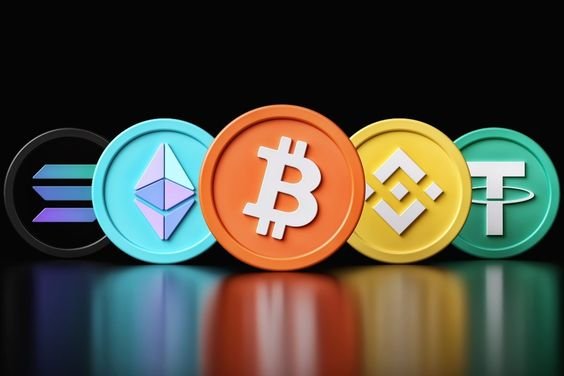Recent developments in the crypto industry have ignited a significant ethical debate, centered around a newly launched venture, World Liberty Financial Inc., co-founded by U.S. President-elect Donald Trump and billionaire Steve Witkoff. The enterprise has partnered with Tron, a prominent crypto platform, which has been implicated by authorities in allegations of facilitating transactions for Iran-backed militant groups and other illicit activities. The partnership, as well as Trump’s involvement, has raised red flags among ethics experts and financial crime specialists.
The Birth of World Liberty Financial Inc.
World Liberty Financial Inc. was established just two months before the November U.S. elections. Spearheaded by Steve Witkoff, with Trump as a financial beneficiary, the platform aims to revolutionize the crypto landscape. However, the company’s association with Tron has drawn scrutiny due to Tron’s alleged use by groups designated as terrorist organizations, including Hamas and Hezbollah.
Tron’s Controversial Role in Crypto Transfers
Tron, a blockchain platform founded by Chinese entrepreneur Justin Sun, has gained notoriety for its low transaction fees and speed. These features have attracted lawful users and those with illicit motives alike. Since 2021, Israeli authorities have linked Tron’s wallets to militant groups, freezing 186 accounts allegedly associated with terrorism financing. Notably:
- 84 wallets were linked to Hamas and its allies, including Islamic Jihad.
- 39 wallets were connected to Hezbollah.
- The remaining wallets were associated with unspecified groups and money changers.
Tron’s founder, Justin Sun, stated that the company is actively collaborating with law enforcement to combat illegal activities, citing the freezing of $70 million in illicit funds as a significant step. However, Sun has faced his own legal troubles, including charges by the U.S. Securities and Exchange Commission (SEC) for fraud.
Tron’s $30 Million Investment in World Liberty
In a high-profile move, Tron invested $30 million into World Liberty Financial Inc., becoming its largest investor. Justin Sun has also joined the venture as an advisor. While this partnership aims to bolster the platform’s technological capabilities, it also raises concerns over conflicts of interest, given Trump’s financial ties and potential regulatory authority.
Ethical Concerns and Conflicts of Interest
Ethics specialists have flagged several issues surrounding World Liberty Financial Inc.:
- Tron’s Association with Illicit Activities: The allegations against Tron for its role in transactions linked to militant groups amplify concerns about its partnership with World Liberty.
- Trump’s Financial Stake: Trump is listed as “chief crypto advocate” on World Liberty’s website and is entitled to a substantial share of its revenues. This financial connection raises questions about whether individuals might purchase World Liberty tokens to curry favor with Trump.
- Steve Witkoff’s Role: Witkoff’s dual responsibilities as co-founder of World Liberty and U.S. special envoy to the Middle East present potential conflicts. His business interests could potentially influence his policy recommendations.
- Justin Sun’s Involvement: Given Sun’s ongoing legal battles with the SEC, his advisory role in World Liberty could pose reputational risks for the venture and complicate regulatory oversight.
Ethical Violations and Historical Precedents
Experts have compared this situation to previous cases where business ventures blurred the lines between public office and private gain:
- Richard Painter, a former ethics counsel, emphasized the importance of avoiding financial interests that could conflict with government responsibilities.
- Kathleen Clark, a government ethics professor, highlighted the red flags associated with Trump’s and Witkoff’s overlapping roles in World Liberty and governance.
Potential Regulatory Implications
World Liberty’s connections with Tron and Trump may have broader implications for U.S. regulatory policies on cryptocurrency:
- New SEC Leadership: Trump has pledged to appoint crypto-friendly leadership to the SEC, potentially influencing enforcement priorities and easing scrutiny on platforms like Tron.
- Regulatory Oversight: Critics argue that World Liberty could benefit from regulatory changes under Trump’s administration, creating an uneven playing field in the crypto industry.
- Conflict of Interest Management: Calls for stringent measures, such as blind trusts or asset divestments, have surfaced to mitigate potential conflicts involving Trump and Witkoff.
International Repercussions and Middle East Dynamics
The timing of this partnership, amid heightened tensions in the Middle East, has added another layer of complexity. Witkoff’s appointment as special envoy and his ties to World Liberty have raised eyebrows among diplomats and ethics watchdogs. His lack of foreign policy experience, coupled with his role in a venture linked to contentious financial activities, has sparked criticism.
Diplomatic Challenges
Witkoff’s involvement in both the crypto industry and Middle Eastern diplomacy could blur the lines between public and private interests. Transparency International has called for clear guidelines to prevent foreign governments from leveraging World Liberty to gain influence over U.S. policies.
The Emoluments Clause and Foreign Investments
Ethics experts have also pointed to the U.S. Constitution’s Emoluments Clause, which prohibits federal officials from accepting financial benefits from foreign entities without congressional approval. Any investment in World Liberty by foreign governments or sovereign wealth funds could potentially violate this provision.
Future of World Liberty and Crypto Regulation
As Trump prepares to take office, the controversy surrounding World Liberty Financial Inc. underscores the challenges of balancing private enterprise with public responsibilities. The venture’s trajectory could serve as a litmus test for the future of crypto regulation and the ethical boundaries of political leadership.
Conclusion
World Liberty Financial Inc.’s ambitious entry into the crypto space has brought significant attention to the ethical and regulatory challenges of blending politics with private business. The involvement of Tron, with its contentious track record, coupled with Trump’s and Witkoff’s financial interests, poses critical questions about transparency, accountability, and the broader implications for U.S. governance. The unfolding developments in this case will likely shape the discourse around crypto regulation and ethical standards in public office for years to come.
ALSO READ: The Most Popular Crypto Twitter Influencers




